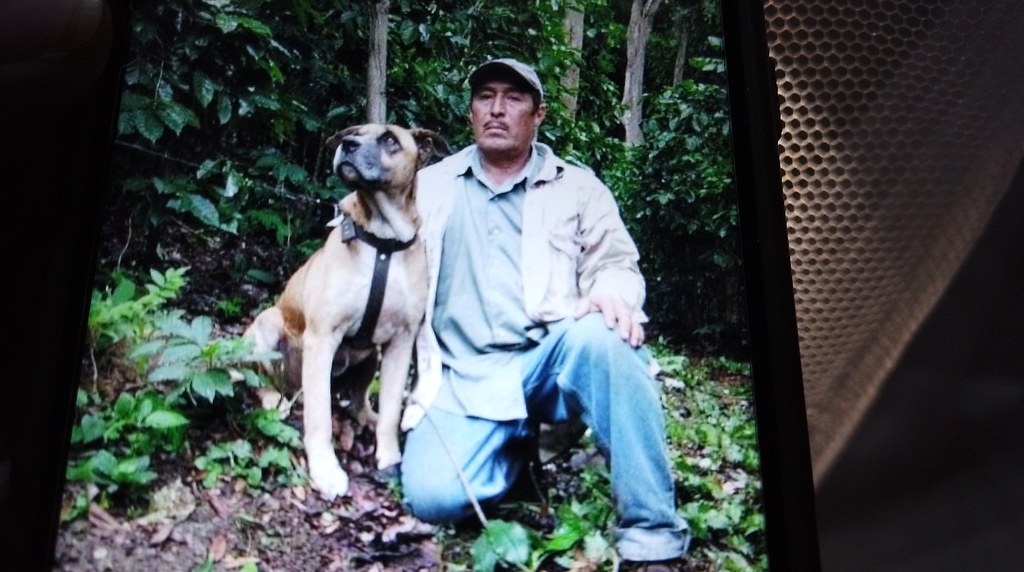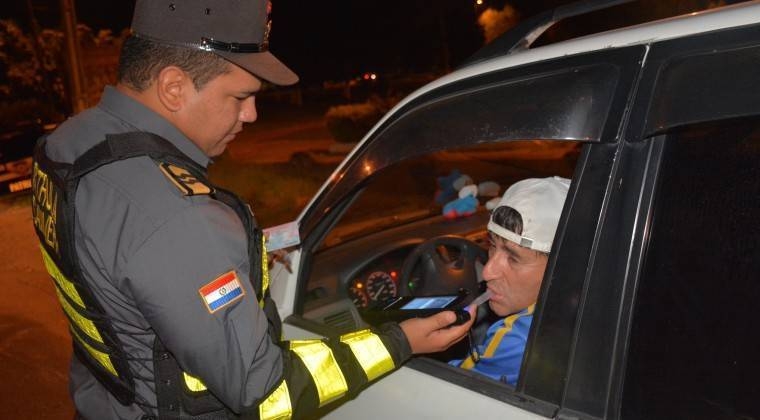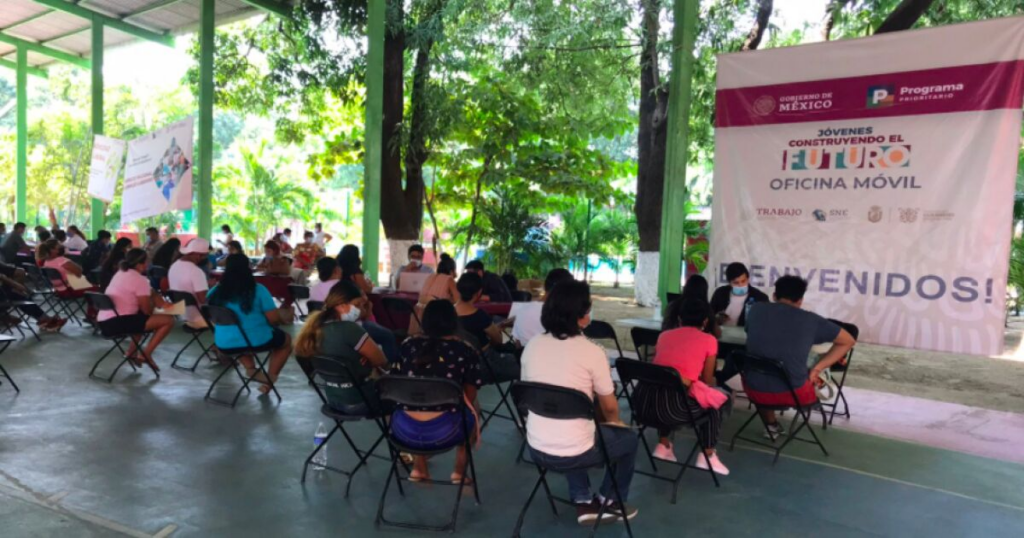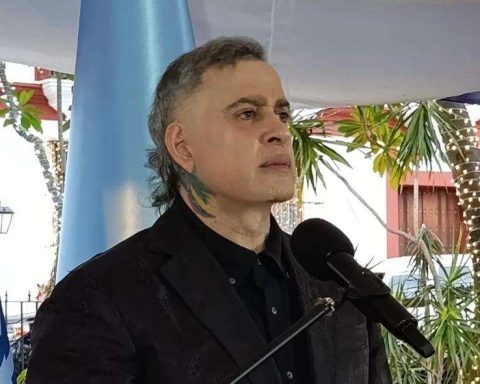Santos Camilo Bellorín Lira’s hands are rough; thick from the calluses upon calluses that have been formed by decades of work in the fields. His rough and bulky fingers make it difficult for him to manipulate the small “chewing gum” cell phone —non-intelligent mobile— that he had. Generally, according to relatives, he asked for help to save a number. However, the Public Ministry describes the peasant as a citizen with “skills” in computer systems and social networks.
Bellorín, 56 years old, reached the fifth grade of primary school. He abandoned his studies to dedicate himself to the field and support his family. Almost all his years he has lived in the small rural community of Santa Teresa de Guasuyuca, in the municipality of Pueblo Nuevo, Estelí, more than 230 kilometers from Managua, the Nicaraguan capital.
In his small house there are no computers, he has never owned a smart mobile phone and he has no accounts on Facebook, Twitter, Instagram or another social network.
The Prosecutor accused him last November of using social networks to create “alarm, fear and anxiety” among the inhabitants of Pueblo Nuevo. Last Tuesday, February 15, the peasant was sentenced to 11 years in prison: six years for the alleged “crime of undermining national integrity (conspiracy)”, and five years for allegedly spreading false news through information technology. information and communication.
“He is a man, in that part (management of technology and social networks), we could say illiterate. He has never known social networks. He always used a small cell phone, which does not have any of those functions of WhatsApp or Twitter, or Facebook, or anything, “says ‘Isabel’, a relative from Bellorín who asked to omit her name for fear of reprisals against her or him. arrested.
Accused by Police
The prosecutor Auxiliadora Sequeira Suazo presented five officers as witnesses of the delegations of Pueblo Nuevo and Estelí, including police chiefs, experts and detectives.
Boanerges Fornos, former departmental prosecutor of the Public Ministry and director of the Criminal Action agency, recently explained that, in all political trials, the Prosecutor’s Office “uses police officers who they say what the regime wants them to say”, which is why no civilian has been called as a witness.
The criminal complaint against the peasant was filed by the Deputy Commissioner Gary Kirkland Moreno, of the Estelí Police. In the trial, the police command stated that they accused Bellorín Lira because Captain Douglas Bonz Peralta, chief of the Pueblo Nuevo Police, told him last November that the peasant had made some negative comments against the government.
In his testimony, Captain Bonz Peralta assured that in an alleged meeting, in March 2020, with residents of the Guasuyuca community, Bellorín said that those meetings were useless because there was always insecurity.
The police chief did not show evidence of the meeting with the residents.
“In each meeting, the police officers keep an agenda to see the points to be discussed. During the interrogation, the defense asked the captain to present the agenda of that alleged meeting, but he said that he did not have it, “explained Bellorín’s relative.
In addition to Kirkland and Bonz, the following testified at the trial: the intelligence officer, Elder Antonio Centeno Borge; Detective Santos Leonel Lira Montalván; and the expert Robin Ariel Niño Zambrana. Everyone from the Pueblo Nuevo delegation.
Supposed profiles on social networks
To support the accusation of cybercrimes, the Public Prosecutor’s Office He presented screenshots of some tweets and posts shared from the farmer’s alleged Twitter and Facebook accounts.
On Twitter, there are only two profiles associated with the name of Santos Bellorín: one is @ocotal51, which has never registered any activity. The other is @BellorinSantos, in the name of Santos Rafael Bellorín, who also shows no activity.
The prosecutor also pointed out that the peasant published on Facebook, in March 2021, a post from the Santos BOVG59 profile, in which he allegedly called the last elections a “circus”.
According to the defense, the Prosecutor’s Office did not present any evidence that those accounts and profiles belonged to the peasant.
“The Public Ministry accuses him as Santos Bellorín, but there may be many Santos Bellorín. We are facing an atypical crime, which does not exist. They are accusing a person who is not the one who spread those messages”, detailed ‘Isabel’.
Lawyers and specialists in Criminal Law have detailed CONFIDENTIAL that “Twitter posts, retweets to messages from other people or international organizations, interviews with the media in which they ask for individual sanctions, interviews with police officers who contradict each other, messages on their cell phones,” are some of the alleged evidence from the Public Ministry in political trials.
“They have condemned the political prisoners with ridiculous tests that prove nothing, rather than the regime’s thirst for revenge on them. They are evidence that in any real trial would fall in two seconds, what they are doing borders on parody, ”said a defender, who for security reasons requested that her name be omitted.
Judge Erick Laguna
The trial against Bellorín was led by Erick Ramón Laguna Averruz, of the Estelí Criminal District Court, who in the past has favored regime sympathizers with minimum sentences.
In 2012, he imposed the minimum sentence of three and a half years in prison against Ortega fanatics and policemen, who one day after the elections of November 7, 2011, they shot dead three opponents, in “the Massacre of El Carrizo”.
In November 2020, Judge Laguna ordered the release of the Sandinista militant Abner Pineda Castellón, who on July 19 of that same year, shot dead the citizen at close range. Jorge Luis Rugama Rizo, after the victim shouted: “Long live free Nicaragua!”
Bellorín was sentenced under two legislations: Special Cybercrime Law, known as “Gag Law”, and the “Sovereignty Law” or Law 1055, approved by Ortega at the end of 2020, in a package of repressive laws used to direct a political hunt in 2021, which has left more than 70 political prisoners.
The “Gag Law” establishes up to ten years in prison for citizens who, according to the regime, spread false news through social networks and the media.
The “Sovereignty Law” was approved on December 21, 2020. The Prosecutor’s Office has turned this legislation into a repressive tool, through which they justify the arrests against opponents of the regime.
Santos Bellorín is being held in the Estelí prison system, where citizens are also being held. Douglas Cerros Lanzas and Alexis Peralta Espinoza. All three have been found guilty and sentenced. under both laws.
Cerros Lanzas was sentenced to twelve years in prison, while Peralta Espinoza was sentenced to eleven.
detained with deception
Bellorín was arrested on Saturday, November 6, 2021, in a raid against critical citizens, on the eve of the general votes on Sunday, November 7. That same day Cerros and Peralta were arrested.

The peasant was released on November 9, but two days later officers from the Pueblo Nuevo Police summoned him to sign some documents, and he never returned home.
“We asked the official if he had the papers, because we did not see the need to go to a delegation to sign. He told us that he (Santos Bellorín) had to go to the station”, commented ‘Gustavo’, a relative of the condemned peasant.
“He willingly showed up (at the Pueblo Nuevo delegation); once there they told him that he was being legally held,” he added.
Speaking slowly, Bellorín is a man who has had little political participation in his community. The most remarkable thing has been his function as electoral prosecutor of the Constitutionalist Liberal Party (PLC), in the elections of 1996, 2001 and 2011.
“I was not part of anything, not political activities. He practically lived only for his business: a grocery store and agriculture, “said ‘Gustavo’.
The arrest of Santos Bellorín has shocked the small rural community of Santa Teresa de Guasuyuca. The residents, including supporters of the Sandinista Front, signed a letter requesting Bellorín’s release, which was not attended to by the judicial authorities.
Since he was a child, Bellorín has dedicated himself exclusively to the land, to agricultural activity, planting vegetables, basic grains and coffee, and raising cattle. His only time away from the field was in the 1980s, when he spent two years in the Patriotic Military Service, and then became active in the reserve battalions.
During the trial, Bellorín told the judge: “I am a farmer, if you ask me about the plow I will tell you, in the political matter I am innocent, technology eats me up, I do not even know how to record a telephone number. I only have fifth grade (of Primary) approved, I barely know how to read and write, and my only intention is work and agriculture”.
“I have given my life to the government. I gave my love and combat to Commander Daniel Ortega. If they are going to convict, they convict a peasant”, he recalled.


















